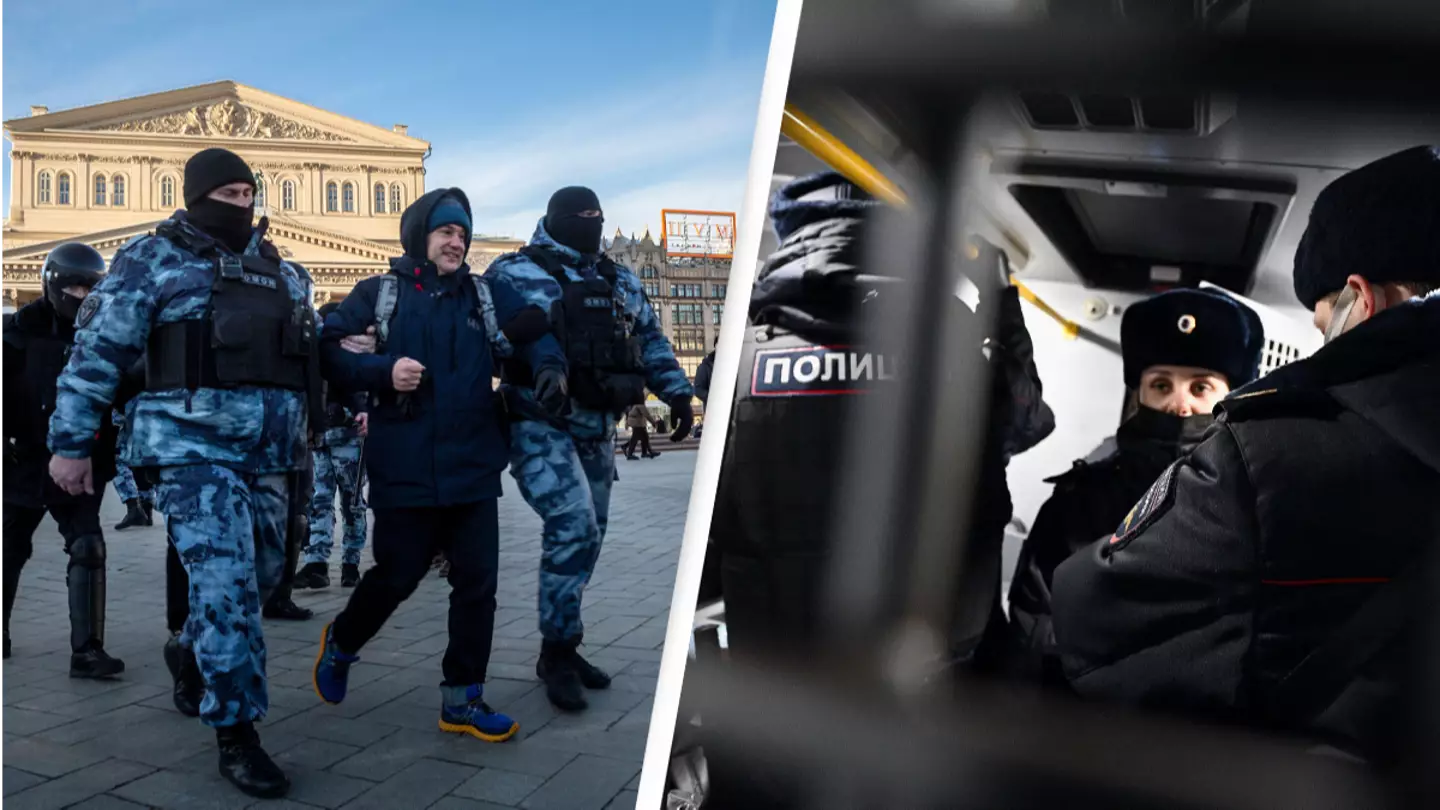
New laws aimed at silencing Vladimir Putin's critics are in full swing, as reports of the Kremlin charging Russians for speaking out against the invasion of Ukraine emerge.
President Vladimir Putin first sent troops across the border on 24 February in what he called a 'special military operation'.
However, while also facing sanctions from other countries, Putin has seen backlash from his country's own soldiers and from residents within Russia, with thousands having gathered in protest of the war.
Those against the invasion have since faced a series of laws which were first implemented in March to try and censor any opposition.
Founder of Russian human rights and legal defence organisation AGORA, Pavel Chikov, explained there's currently 'pure military censorship' occurring in Russia.
Advert
He told The Star: "Legally speaking, there is only one source of factual information about the military operation of the Russian army in Ukraine, which is the Ministry of Defence.
"[...] No other information is allowed."
Those who speak out in opposition of Putin's 'special military operation' now face two administrative censorship laws.
If seen to commit repeat offences, Russian citizens could end up having to pay fines or even serve time in jail.
Russian residents could also face up to 15 years in prison if seen to share 'false' information about the Kremlin or its military
Last month, a 25-year-old IT worker was arrested in Kazan.
The police report read: "In his hands, he held a bouquet of branches painted blue and gold, identical to the flag of Ukraine and tied together with a green satin ribbon."
The IT worker said: "In general, as a normal human being, I don’t want people to die. I also have friends in Ukraine.
“I couldn’t imagine that it could be claimed as a crime [...] I think people have been trying to stand on the boundaries (of the law), but the reality is that there are no boundaries anymore and even for flowers you can go to jail.”
Alexander Kondratiev was fined 30,000 rubles (£285.03) for spitting on a banner with the Russian propaganda symbol 'Z' on it.
"Spitting on the swastika does not discredit the armed forces," his lawyer, Mikhail Benyash, stated on Telegram.
Kazan lawyer, Rim Sabirov, noted how the eight clients he is representing - because of them having been charged with administrative offences - are just 'ordinary citizens'.
He said: "They are [...] typical students, people whose only goal is to express themselves. For example, someone put a green ribbon on a briefcase and the person was detained because this was seen as discrediting the armed forces. It’s really absurd, as you can see.”
If you would like to donate to the Red Cross Emergency Appeal, which will help provide food, medicines and basic medical supplies, shelter and water to those in Ukraine, click here for more information
Topics: Russia, Vladimir Putin, Ukraine